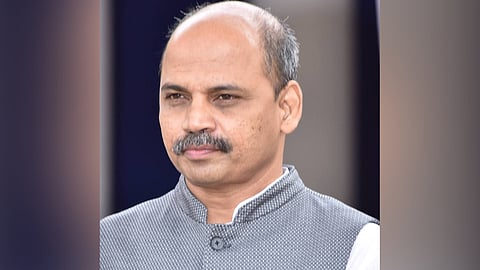

BENGALURU: Addressing the media after an interaction with the Senior Residents, Under Graduate and Post Graduate students, para-medical staff and interns of Bangalore Medical College and Research Institute (BMCRI), Medical Education Minister Dr Sharan Prakash Patil said, “The state government is committed to safeguarding medical professionals, particularly women, by enhancing existing security measures. We are fully committed to ensure the safety of women doctors. We have received feedback from the stakeholders, and will implement additional security measures including installation of more streetlights, CCTV cameras, and appointing trained security personnel, at all medical colleges, super-speciality hospitals, and hostels. We are also prioritising safety of women in restrooms.”
He was also discussing with the officials and stakeholders to bolster the security measures at the institute following the national outrage over the recent rape and murder of a doctor in Kolkata.
Dr Patil assured that the above measures will be in line with the guidelines set by the union government and the Supreme Court. Additionally, he also highlighted the importance of the internal complaints committees established under the PoSH Act (Sexual Harassment of Women at Workplace (Prevention, Prohibition and Redressal) Act), stressing that these bodies will rigorously address any grievance brought forward by women in the medical field.
Dr Patil issued a stern warning against perpetrators of violence and sexual assault, stating that the government will take stringent action against such offences. “We will leave no stone unturned in our efforts to protect our medical professionals, particularly women,” he affirmed.
Installation of alarm bells and mobile gadgets at appropriate locations, imparting self-defence training, biometrics to be installed in duty rooms, banning entry of inebriated people in hospital premises, restricting one attender per patient, posting armed security personnel near casualty, and coordinating the 112 helpline with local police station, were among the major recommendations students and doctors came up with, at the meeting.